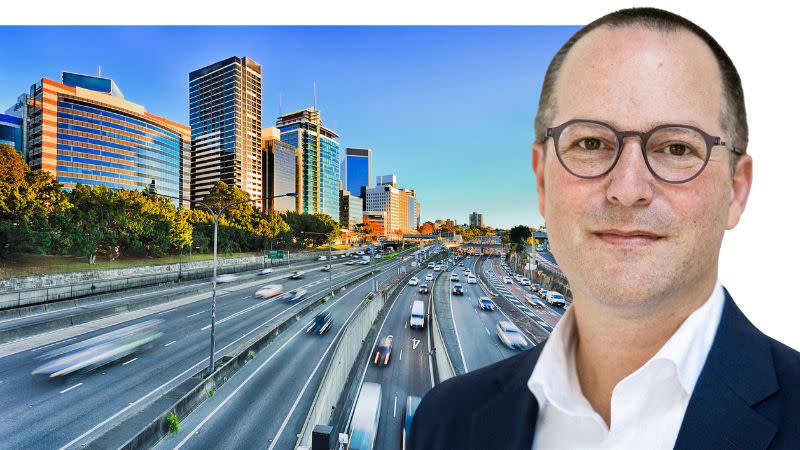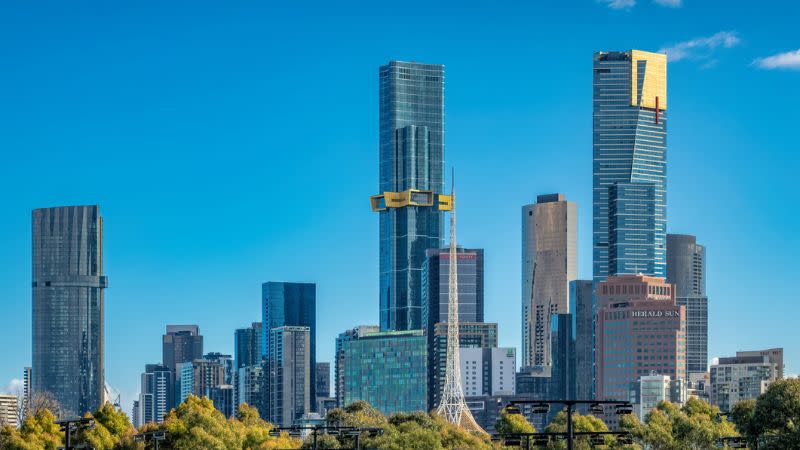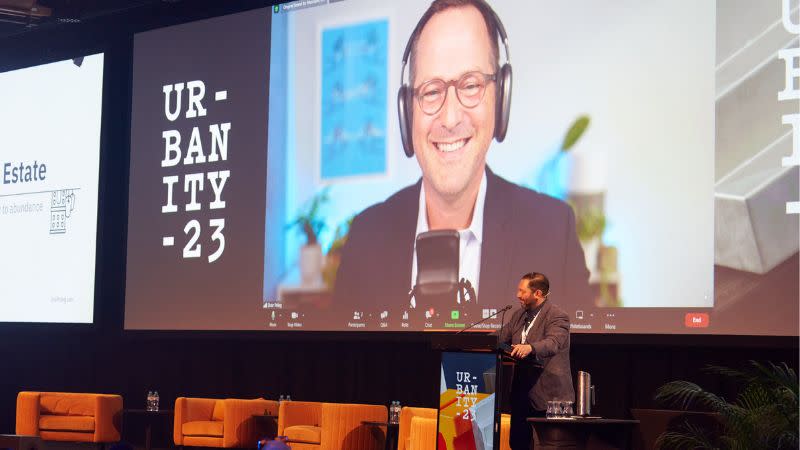Five Stages of Grief As Office Bounceback Hopes Fade

The property industry, and specifically the office market, is undergoing the five stages of grief as the way we work changes forever.
New-York-based Dror Poleg, author of the award-winning and hugely influential Rethinking Real Estate, detailed where the sector is heading during his keynote presentation at The Urban Developer’s flagship conference Urbanity 23 at The Star Gold Coast.
An unconventional start for the final morning of the conference began with mentions of singer Adele, WeWork’s Adam Neumann and Poleg’s past as a Telstra call centre employee, but he predicted that the office market would need to undergo seismic changes to remain relevant to a changing workforce.
“Location remains important, but it’s now somewhere else. When they can work from anywhere, they work from home, not from where they used to work,” he told the audience.
Poleg compared what real estate is undergoing to the transformational changes that happened in the world of digital media and services in recent decades, and the likes of digital platforms such as Airbnb that had impacted real-world real estate.
“Real estate is also now going through this transition that digital media went through—it’s moving from a world of scarcity to a world of abundance and choice,” Poleg said.
“[So] what are the implications of all this to the physical and built world in general, and what can we do about it? It’s not all bad news, there are lots of opportunities to make money, enjoy yourselves and even to do good for the planet, your communities, your soul and yourself as well.”
The way we were
In the 1990s, theorists predicted that the rise of the internet would lead to the death of office culture, but it did not happen until much later, Poleg said.
“Back then, the opposite happened. The internet fuelled an urban comeback in the developing world. New cities were being built. Even places like London, New York, Paris, San Francisco—more people moved in instead of moving out.”
But things began to change as early as the 2010s.
“Even before Covid, there were already some signs that this theory [that the office market would remain strong] wasn’t really working.
“A lot of office markets were softening and were basically propped up by people like Adam Neumann, who took venture capital money and signed leases that didn’t make sense and kept those spaces empty.”
So, the writing was on the wall about the end of the office market, Poleg explained.

“In the US in 2019, just before Covid, half of all the uptake of office space came from companies like WeWork, flexible space operators. It was already in a recession or slowdown as far as offices were concerned.
“More importantly, there was a big wave starting in 2015, of the largest and most innovative companies starting to hire people from more locations, splitting headquarters into three, four five ... companies like Apple, Shopify, Facebook, etc.
“Back then it was easy to ignore this because people always had branches and offices. Multinational companies are not a new thing.
“And then the world sneezed.
“Suddenly within a couple of years, work from home reached unprecedented levels.”
Work from home revolution
Companies today are more remote and reliant on outsourced talent, from contractors to freelancers, and the digital frameworks that connect their increasingly virtual company structures.
“It’s not just about where the job is being done. The border of the company is less clearly defined and the larger the company, the less defined it is.”
This of course means that the office as we know it is transforming and will continue to do so, putting extra pressure on landlords, agents and developers of offices.
“In real estate, office landlords are going through five stages of real estate grief. They are saying that this remote thing is temporary, that everyone will come back in a week, a month, a year.
“Then it’s anger, forcing people to come back. Now companies and landlords are bargaining stage, offering free childcare, Ubers, to please come back.
“Some are already in the depression stage—let’s give the building back to the bank and complain. And then we’re slowly getting to acceptance.

“This story is presented as spoiled employees; that Millennials and Gen Z are not as ambitious and they don’t want to come to office. But actually the deeper driver is the demand for flexibility, which is first and foremost a corporate need in the 21st century even thought a lot don’t understand that yet.”
Out of the ashes
This is the stage of opportunity, Poleg said.
“Offices now have to change and become more flexible and do things they weren’t willing to do before.
“Some are reluctantly embracing it. And the slowdown in offices is causing a slowdown and confusion in all types of assets, from full service hotels, the location of housing, retail—that suburban retail, places that were given up for dead are suddenly booming, while central retail is now a disaster.”

This transformation will not continue on a linear path however, with artificial intelligence now being introduced to shake things up further.
“AI and remote working are a match made in heaven, as work becomes more asynchronous, we can ask AI to take on new tasks and responsibilities.”
This will fundamentally change how work is undertaken, and therefore the built environment which is attached.
“If I were to distill it into one sentence, instead of doing the same things better, we need to do different things.
“[We need to think about things like] how do investors limit your competitiveness? Maybe you have to do things now that people looking for regular dividends would not support you [with], maybe you need a different entity which is funded and financed differently, even if it means losing income.
“Invest in ventures and early-stage ideas, make more bets, even with smaller money, might learn something or get an advance view on something coming round the bend.
“We’re now moving from a game of Monopoly to a game of strategy.”
















